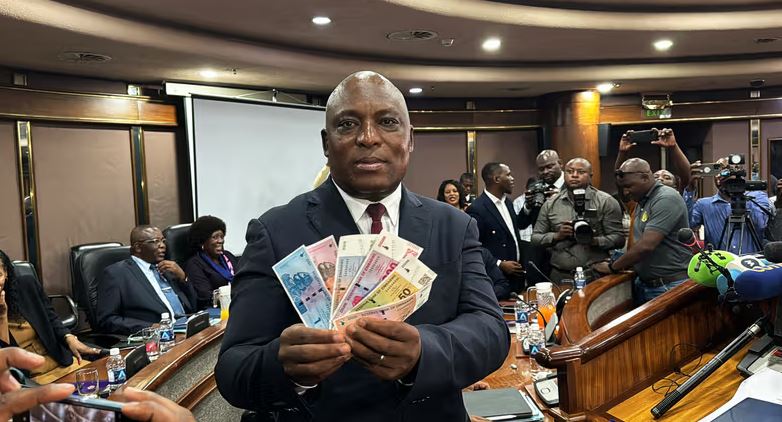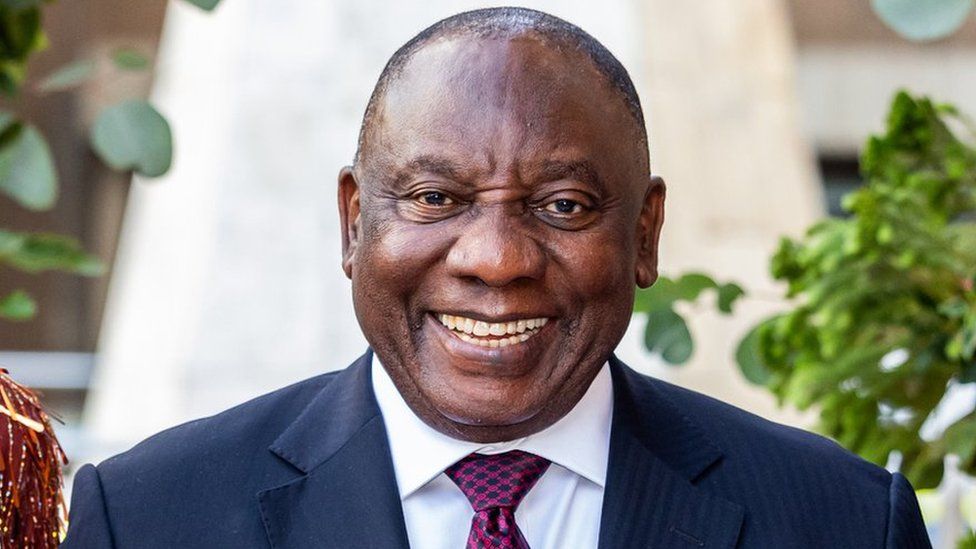For a hungry and frustrated individual, “We’ll just scan your eyeballs” is not too much to ask especially if it is in exchange for the equivalent of Kshs.7000.
Scores of Kenyans lined streets in Nairobi waiting their turn for their eyeballs to be scanned so that they could get the cash reward in the offing. It mattered not what they had to do, what they were giving up, what the scan meant or the information it collected from them, the underscoring line for most in the queue was that they were taking home some money.
In these harsh times where Kenyans are struggling to afford basic needs, it sounded like a good deal to the thousands of citizens who managed to get scanned before the government stepped in and put a stop to this new age madness… but was it just another raw deal for poor unsuspecting Kenyans?
Many of those who had their eyeballs scanned express absolutely no regret about what they did or allowed to be done to them. “Today my family will have a decent meal and I will be able to pay part of the debt I have on my rent,” said one of the many victims of Alex Blania and Sam Altman’s iris scan.
It is this que sera, sera approach to digital issues of this magnitude that is worrying. What are the implications of the scan? What’s next? What dangers, financial and otherwise do the participants face? Are there issues of identity theft to be worried about in this proof of personhood quest that has zeroed in so decidedly on third-world countries?
To understand all this, let us go back to the beginning.
What is Worldcoin?
24.7.2023…After years stuck in the development stage, this was the day World Coin was finally launched. The company behind it? Tools for Humanity which has offices in Berlin and San Francisco.
The tech company endeavours to create a “more just economic system”. In their own words, the company hopes to be able to use technology in helpful and human-first ways to help more people thrive.
Sounds very altruistic on the face of it all right?
The conundrum that is artificial intelligence and the advancements that accompany it are presenting new and unprecedented challenges to the human race on a regular. As things are now, there is a huge question about the authenticity of anything we see online. Is it manmade or simply an AI output? This goes for digital artwork, written and published content such as this article and virtually anything that is published online for consumption by audiences around the world. The distinction is becoming harder and harder to make.
World coin is therefore the digital technology that has emerged to clear this confusion. The goal is to provide a verified digital identity, a digital passport if you like, a token in the form of cryptocurrency as well as a crypto wallet app.
Taking to his X (formerly Twitter) account, Altman (investor, entrepreneur and computer scientist) proudly announced the launch of Worldcoin, a post that attracted more negative comments than it did positive ones. Most of the users on X were worried about the possible misconduct of centralization which has been evident in similar instances in the past.
Worldcoin already garnered 2 million users during its beta phase and is now planning to scale its orbing activities to 35 cities in 20 countries. The cryptocurrency incentive offered is undoubtedly responsible for the rapid intake being seen in certain countries.
The untold story, good and bad
The creators and proponents of world coin have flaunted it as a countermeasure to AI and the identity challenges it presents. For others and sceptics like myself, all I see is a scary episode of the series Black Mirror, come to life – and I shudder at the thought of all the things that could go wrong.
While I have not looked into the orb, I know that the bowling ball-sized apparatus confers proof of personhood using cameras, sensors and AI technology. At the end of the exercise, one thing should be certain; you are indeed a human being.
The premise upon which Worldcoin has found a lease of life is quite bold. The creators see a near future where fast-evolving AI turns into AGI (advanced general intelligence). The simplistic translation of this is that AI will eventually supersede human intelligence and consequently productivity will increase but so will world wealth. To keep the elite class from short-changing the rest of humanity, UBI or universal basic income will see to it that billions of people all over the world are empowered and there is a fair distribution of wealth through Worldcoin (WLD).
What many do not realize is that even Blania, the CEO of Tools for Humanity did not want to go the orb way. The orb is mostly creepy and leaves you with a foreboding feeling about what is to come after you look into the exceedingly shiny ball.
Users did not look at the fine print and many refused to be a part of the circus (myself included). If they had, however, they would have seen that the orb only collects certain data unless you expressly allow it. The entire project utilized ZKs or zero-knowledge proofs as a measure to preserve the privacy of users.
That is the rosy side of the untold. Now here is the more obvious flipside that lingers in the minds of many people.
Neocolonialism issues have been raised concerning the apparent collection of the biometric data of people. Furthermore, the focus of Worldcoin on poor populations has critics saying that the company is basically harvesting data from unsuspecting vulnerable populations who need desperately the monetary incentive being offered.
There have been accusations of malfunction in the workings of the orbs, misinformation or total lack of the same especially for the less crypto-curious who know nothing about what they are ‘giving up’. There have also been scary user experiences which directly contradict what the company purports to access from the orb scans.
The issue of informed consent has also been brought up with evidence showing that a good number of those who allowed their iris to be scanned had no idea what the procedure meant or what future interactions with Worldcoin looked like.
Deceptive marketing practices to sell the idea of Worldcoin to ‘unsuspecting’ poor populations have also been cited as one of the reasons why everyone should be wary of the orb. Blania, the CEO of Tools for Humanity has however downplayed all these as infancy and teething problems which would be evident in any start-up company.
Conclusion
The way Altman sees it, biometrics databases will be inevitable in the not-so-distant future. If it is not by Worldcoin then it will be another tech outfit. AI will eventually become so good that telling the difference between AI and humans will be a problem and this is how the orb scans can help.
Altman envisages a materially abundant world once AI gets to this stage and to prevent colonialism by the elite, UBI will need to take effect and ensure equitable distribution of the abundance.
As to the question of why an entity which prides itself on privacy for its users is so focused on identity, well I am yet to get a convincing answer. It is contradictory and hopefully, more light is shed on the matter as the company works towards demystifying its operations and goals.
What lingers more on my mind is something a lot simpler; what is going to be the consequence of exclusion? Are those unwilling to have their eyes scanned forever cast out? Are they immediately declared unworthy of the benefits that recruits stand to gain? Will access to services and resources be affected by whether or not you have undergone the initiation?
The Kenyan government recently suspended the activities of Worldcoin and all other entities of the same kind in the country. The government cited security concerns. In an effort that came after thousands had unfortunately already registered, the government set in motion a probe amid uproar from government officials and some citizens. The move is set to ensure that the company and all their associates comply with data collection and sharing policies.
Is there some element of fear-mongering where crypto and specifically Worldcoin is concerned? Maybe. Tiago Sada who is a core member of Worldcoin and the Head of product at Tools for Humanity simplifies the whole idea of acquiring a unique iris code.
“Think of your World ID as a passport and all the Orb does is stamp your passport to say it’s valid. No map of the eyeball is captured. It’s just a code that says you are a unique human – not your age, or race or gender or eye color.”
So perhaps you get over the unnervingly heavy similarities to the Eye of Sauron that the orb possesses and give it a go. You will need to read their data privacy policy with a fine-toothed comb and make an informed decision if WLD is a risk you want to take. Crypto is a dicey venture and those that get into it must have a few shock absorbers in place for unsavoury eventualities but if Sam Altman is right, if a society that is rich enough to end poverty is not impossible, it is indeed our collective moral duty to find out how to make it a reality.
Cover photo by Worldcoin.



